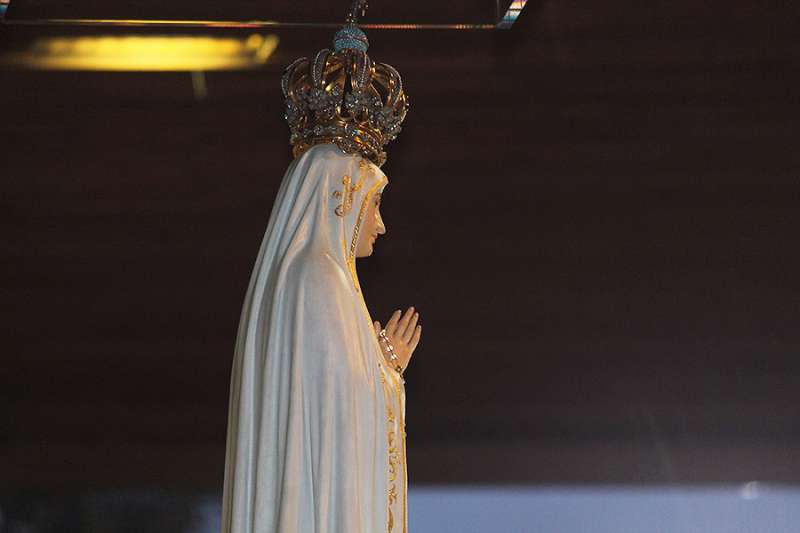Among the Church’s newest cardinals is Antonio Augusto dos Santos Marto, who oversees the diocese of Leiria-Fatima. He says his elevation to the rank of cardinal is not only a sign of Francis' affinity for popular devotion, but shows the relevance of the message Mary gave to the Church when she appeared in the small town over 100 years ago.
When Pope Francis visited Fatima in May 2017 to celebrate the 100-year anniversary of one of the most famous Marian apparitions in the history of the Church, “he understood and intuited” not only what was happening in the Church and in global society 100 years ago, but also what is happening today, Santos said.
Speaking to journalists hours before the June 28 consistory in which he was elevated to the rank of cardinal, Santos said that “Pope Francis intuits a lot in a short amount of time...he deeply understands the value of what the Church is living.”
“In my view, he intuited and understood the universal projection of the Fatima message,” both for the Church and for humanity, he said, and pointed to modern crises which parallel the global challenges present in 1917, such as persecution of the Church and what Pope Francis has called the “third world war in pieces.”
Not only will the presence of a cardinal give more weight to the Marian apparitions, but it can also be read as a sign of Francis' love for expressions of popular piety and devotion, Santos said.
Pope Francis “has a great love for popular religiosity, which is an expression of the inculturation of the faith in the simple people, and in Fatima this is seen, it is lived and it is visible.”
“Perhaps the pope was impressed by this living, by this strength of evangelizing through popular religiosity,” he said, citing the pope's background in Latin American culture, which places a strong emphasis on popular devotion.
Santos, 71, has overseen the diocese of Leiria-Fatima since 2006. He oversaw the visit of Benedict XVI in 2010, and was tasked with preparing for the centenary anniversary of the 1917 apparitions, which took place in May 2017, and was marked by a papal visit from Pope Francis.
In his view, Santos said, the centenary celebrations are a key reason why he became a recipient of the red biretta in Thursday's consistory.
Not only is the appointment as cardinal a personal “act of trust” on the part of the pope, but it is also a sign of the universality of the Catholic Church, which is clearly seen in Fatima, visited annually by thousands of pilgrims from all over the world who go to the shrine to pray and honor the Virgin Mary, he said.
These two things, universality and personal trust, “go together,” Santos said, and cited the letter given to the new cardinals after receiving news of their appointments.
In the letter, Francis had told the appointees that “the nomination as cardinal represents the universality of the Church and also a closer bond with the See of Peter, the pope, and the local Church,” Santos said. He called his own nomination “a gift from the pope to Fatima.”
Practically, Santos said not much will change in terms of his duties, since he is still bishop of a diocese, and he will work alongside the rest of the bishops’ conference in a “collegial atmosphere.”
Santos said he found out about his nomination before celebrating Mass on the Feast of Pentecost, when he got a call from the local nuncio informing him of the news.
The cardinal said he was surprised and excited to hear about his nomination. The appointment as cardinal is “a service, it's another mission,” he said, adding that he is “happy, peaceful, and trusting in God's grace to carry out this mission.”

